Happy Thursday! And happy Fourth of July! No TMD today—though there are new episodes of The Dispatch Podcast, Advisory Opinions, and The Remnant.
Before you head out for the parade, we hope you’ll take a few minutes to (re)-read the growing list of Independence Day reflections spanning American history that we’ve compiled over the years. Sure, there are plenty of reasons not to feel all that patriotic right now, but ours is a pretty incredible country, warts and all.
Unless the president decides he has some news to share before then, we’ll be back in your inbox on Monday morning. Enjoy the fireworks!
TMD’s Patriotic Reading List
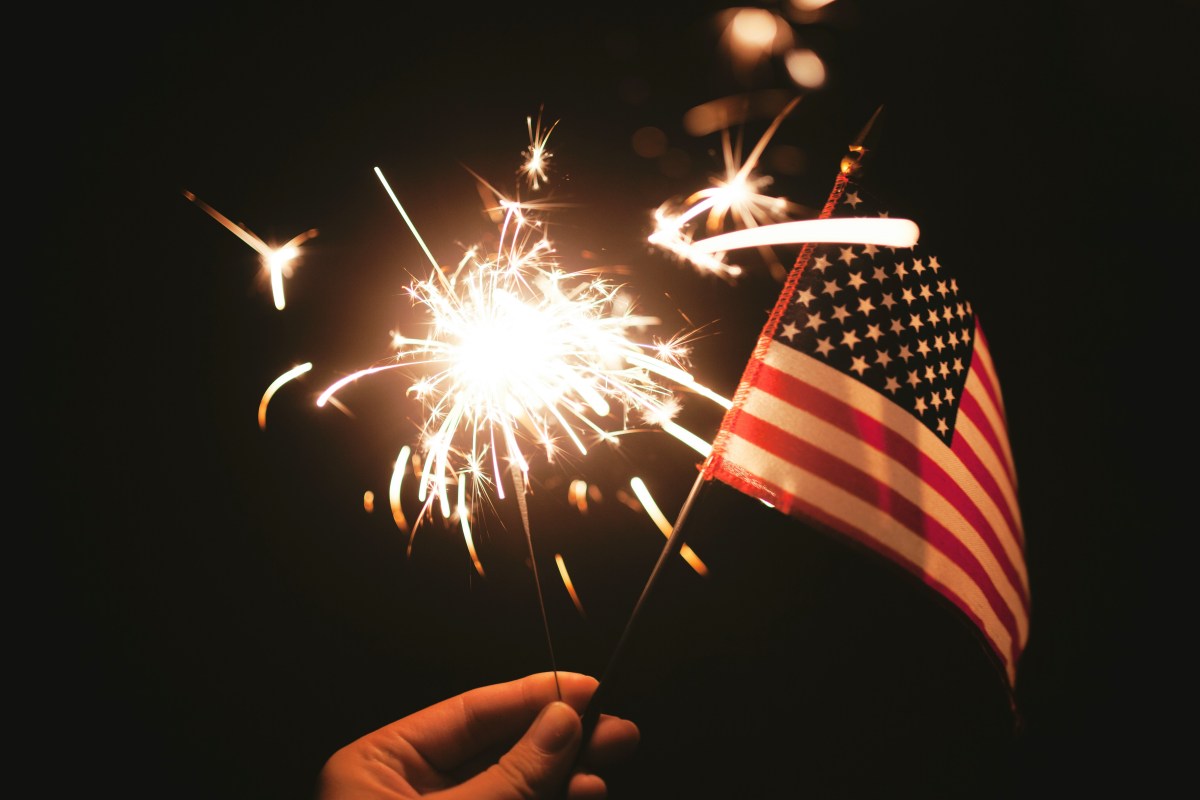
July 4, 1800: Daniel Webster—then a student at Dartmouth College—speaks at an Independence Day celebration in Hanover, New Hampshire.
The 4th day of July, 1776, is now arrived; and America, manfully springing from the torturing fangs of the British Lion, now rises majestic in the pride of her sovereignty, and bids her Eagle elevate his wings! The solemn declaration of Independence is now pronounced, amidst crowds of admiring citizens, by the supreme council of our nation; and received with the unbounded plaudits of a grateful people!
That was the hour, when heroism was proved, when the souls of men were tried. It was then, ye venerable patriots, it was then you stretched the indignant arm, and unitedly swore to be free! Despising such toys as subjugated empires, you then knew no middle fortune between liberty and death. Firmly relying on the patronage of heaven, unwarped in the resolution you had taken, you, then undaunted, met, engaged, defeated the gigantic power of Britain, and rose triumphant over the ruins of your enemies! Trenton, Princeton, Bennington and Saratoga were the successive theaters of your victories, and the utmost bounds of creation are the limits to your fame! The sacred fire of freedom, then enkindled in your breasts, shall be perpetuated through the long descent of future ages, and burn, with undiminished fervor, in the bosoms of millions yet unborn.
…
It becomes us, on whom the defense of our country will ere long devolve, this day, most seriously to reflect on the duties incumbent upon us. Our ancestors bravely snatched expiring liberty from the grasp of Britain, whose touch is poison; shall we now consign it to France, whose embrace is death? We have seen our fathers, in the days of Columbia’s trouble, assume the rough habiliments of war, and seek the hostile field. Too full of sorrow to speak, we have seen them wave a last farewell to a disconsolate, a woestung family! We have seen them return, worn down with fatigue, and scarred with wounds; or we have seen them, perhaps, no more!
For us they fought! For us they bled! For us they conquered! Shall we, their descendants, now basely disgrace our lineage, and pusillanimously disclaim the legacy bequeathed us? Shall we pronounce the sad valediction to freedom, and immolate liberty on the altars our fathers have raise to her? No! The response of a nation is “No!” Let it be registered in the archives of Heaven! Ere the religion we profess, and the privileges we enjoy, are sacrificed at the shrines of despots and demagogues, let the pillars of creation tremble! Let world be wrecked on world, and systems rush to ruin! Let the sons of Europe be vassals; let her hosts of nations be a vast congregation of slaves; but let us, who are this day free, whose hearts are yet unappalled, and whose right arms are yet nerved for war, assemble before the hallowed temple of Columbian Freedom, and swear, to the God of our fathers, to preserve it secure, or die at its portals!
July 5, 1852: Frederick Douglass—a former slave turned abolitionist leader—delivers a speech to the Rochester Ladies’ Anti-Slavery Society in Rochester, New York.
Fellow Citizens, I am not wanting in respect for the fathers of this republic. The signers of the Declaration of Independence were brave men. They were great men too—great enough to give fame to a great age. It does not often happen to a nation to raise, at one time, such a number of truly great men. The point from which I am compelled to view them is not, certainly, the most favorable; and yet I cannot contemplate their great deeds with less than admiration. They were statesmen, patriots and heroes, and for the good they did, and the principles they contended for, I will unite with you to honor their memory.
They loved their country better than their own private interests; and, though this is not the highest form of human excellence, all will concede that it is a rare virtue, and that when it is exhibited, it ought to command respect. He who will, intelligently, lay down his life for his country, is a man whom it is not in human nature to despise. Your fathers staked their lives, their fortunes, and their sacred honor, on the cause of their country. In their admiration of liberty, they lost sight of all other interests.
…
[But] what, to the American slave, is your 4th of July? I answer; a day that reveals to him, more than all other days in the year, the gross injustice and cruelty to which he is the constant victim. To him, your celebration is a sham; your boasted liberty, an unholy license; your national greatness, swelling vanity; your sounds of rejoicing are empty and heartless; your denunciation of tyrants, brass-fronted impudence; your shouts of liberty and equality, hollow mockery; your prayers and hymns, your sermons and thanksgivings, with all your religious parade and solemnity, are, to Him, mere bombast, fraud, deception, impiety, and hypocrisy—a thin veil to cover up crimes which would disgrace a nation of savages. There is not a nation on the earth guilty of practices more shocking and bloody than are the people of the United States, at this very hour.
…
Notwithstanding the dark picture I have this day presented of the state of the nation, I do not despair of this country. There are forces in operation, which must inevitably work The downfall of slavery. “The arm of the Lord is not shortened,” and the doom of slavery is certain. I, therefore, leave off where I began, with hope. While drawing encouragement from the Declaration of Independence, the great principles it contains, and the genius of American Institutions, my spirit is also cheered by the obvious tendencies of the age. Nations do not now stand in the same relation to each other that they did ages ago. No nation can now shut itself up from the surrounding world, and trot round in the same old path of its fathers without interference. The time was when such could be done. Long-established customs of hurtful character could formerly fence themselves in, and do their evil work with social impunity. Knowledge was then confined and enjoyed by the privileged few, and the multitude walked on in mental darkness. But a change has now come over the affairs of mankind.
July 5, 1926: President Calvin Coolidge delivers an address in Philadelphia, Pennsylvania, to celebrate the 150th anniversary of the Declaration of Independence.
Although a century and a half measured in comparison with the length of human experience is but a short time, yet measured in the life of governments and nations it ranks as a very respectable period. Certainly, enough time has elapsed to demonstrate with a great deal of thoroughness the value of our institutions and their dependability as rules for the regulation of human conduct and the advancement of civilization. They have been in existence long enough to become very well-seasoned. They have met, and met successfully, the test of experience.
It is not so much, then, for the purpose of undertaking to proclaim new theories and principles that this annual celebration is maintained, but rather to reaffirm and reestablish those old theories and principles which time and the unerring logic of events have demonstrated to be sound. Amid all the clash of conflicting interests, amid all the welter of partisan politics, every American can turn for solace and consolation to the Declaration of Independence and the Constitution of the United States with the assurance and confidence that those two great charters of freedom and justice remain firm and unshaken. Whatever perils appear, whatever dangers threaten, the Nation remains secure in the knowledge that the ultimate application of the law of the land will provide an adequate defense and protection.
It is little wonder that people at home and abroad consider Independence Hall as hallowed ground and revere the Liberty Bell as a sacred relic. That pile of bricks and mortar, that mass of metal, might appear to the uninstructed as only the outgrown meeting place and the shattered bell of a former time, useless now because of more modern conveniences, but to those who know they have become consecrated by the use which men have made of them. They have long been identified with a great cause. They are the framework of a spiritual event. The world looks upon them, because of their associations of one hundred and fifty years ago, as it looks upon the Holy Land because of what took place there nineteen hundred years ago. Through use for a righteous purpose, they have become sanctified.
…
There is something beyond the establishment of a new nation, great as that event would be, in the Declaration of Independence which has ever since caused it to be regarded as one of the great charters that not only was to liberate America but was everywhere to ennoble humanity.
It was not because it was proposed to establish a new nation, but because it was proposed to establish a nation on new principles, that July 4, 1776, has come to be regarded as one of the greatest days in history. Great ideas do not burst upon the world unannounced. They are reached by a gradual development over a length of time usually proportionate to their importance. This is especially true of the principles laid down in the Declaration of Independence. Three very definite propositions were set out in its preamble regarding the nature of mankind and therefore of government. These were the doctrine that all men are created equal, that they are endowed with certain inalienable rights, and that therefore the source of the just powers of government must be derived from the consent of the governed.
July 4, 1986: President Ronald Reagan addresses the nation from the USS John F. Kennedy in New York Harbor to mark the renovation of the Statue of Liberty.
All through our history, our Presidents and leaders have spoken of national unity and warned us that the real obstacle to moving forward the boundaries of freedom, the only permanent danger to the hope that is America, comes from within. It’s easy enough to dismiss this as a kind of familiar exhortation. Yet the truth is that even two of our greatest Founding Fathers, John Adams and Thomas Jefferson, once learned this lesson late in life. They’d worked so closely together in Philadelphia for independence. But once that was gained and a government was formed, something called partisan politics began to get in the way. After a bitter and divisive campaign, Jefferson defeated Adams for the Presidency in 1800. And the night before Jefferson’s inauguration, Adams slipped away to Boston, disappointed, brokenhearted, and bitter.
For years their estrangement lasted. But then when both had retired, Jefferson at 68 to Monticello and Adams at 76 to Quincy, they began through their letters to speak again to each other. Letters that discussed almost every conceivable subject: gardening, horseback riding, even sneezing as a cure for hiccups; but other subjects as well: the loss of loved ones, the mystery of grief and sorrow, the importance of religion, and of course the last thoughts, the final hopes of two old men, two great patriarchs, for the country that they had helped to found and loved so deeply. “It carries me back,”’ Jefferson wrote about correspondence with his cosigner of the Declaration of Independence, “to the times when, beset with difficulties and dangers, we were fellow laborers in the same cause, struggling for what is most valuable to man, his right to self-government. Laboring always at the same oar, with some wave ever ahead threatening to overwhelm us and yet passing harmless … we rowed through the storm with heart and hand.” It was their last gift to us, this lesson in brotherhood, in tolerance for each other, this insight into America’s strength as a nation. And when both died on the same day within hours of each other, that date was July 4th, 50 years exactly after that first gift to us, the Declaration of Independence.
My fellow Americans, it falls to us to keep faith with them and all the great Americans of our past. Believe me, if there’s one impression I carry with me after the privilege of holding for five-and-a-half years the office held by Adams and Jefferson and Lincoln, it is this: that the things that unite us—America’s past of which we’re so proud, our hopes and aspirations for the future of the world and this much-loved country—these things far outweigh what little divides us. And so tonight we reaffirm that Jew and gentile, we are one nation under God; that black and white, we are one nation indivisible; that Republican and Democrat, we are all Americans. Tonight, with heart and hand, through whatever trial and travail, we pledge ourselves to each other and to the cause of human freedom, the cause that has given light to this land and hope to the world.
Let Us Know
It’s now an annual TMD tradition to leave our international readers out of the Let Us Know question today: What are some of the moments in your lifetime when you were proudest to be an American?
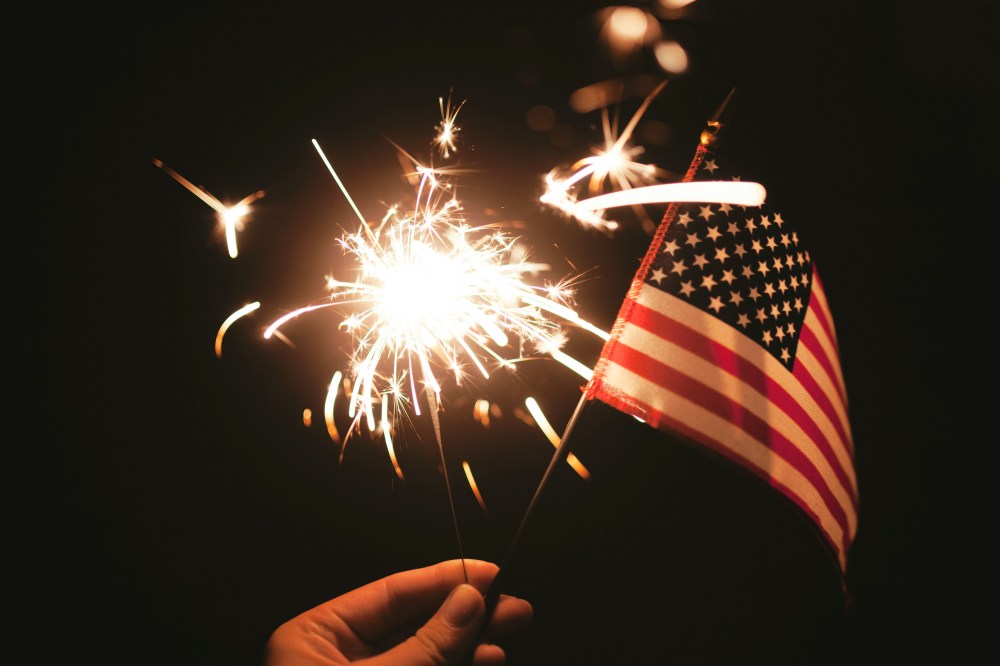
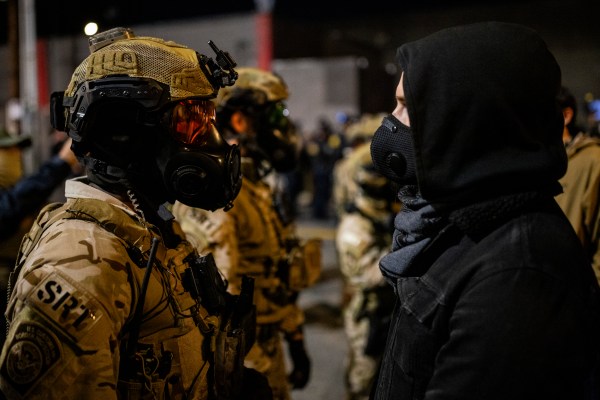


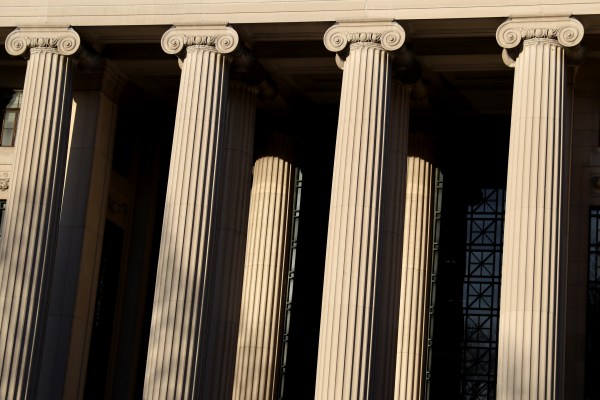
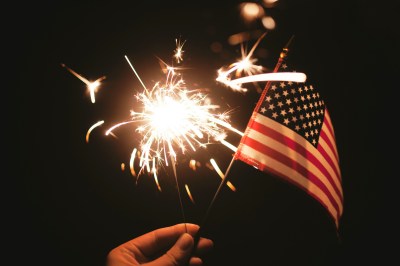
Please note that we at The Dispatch hold ourselves, our work, and our commenters to a higher standard than other places on the internet. We welcome comments that foster genuine debate or discussion—including comments critical of us or our work—but responses that include ad hominem attacks on fellow Dispatch members or are intended to stoke fear and anger may be moderated.
With your membership, you only have the ability to comment on The Morning Dispatch articles. Consider upgrading to join the conversation everywhere.